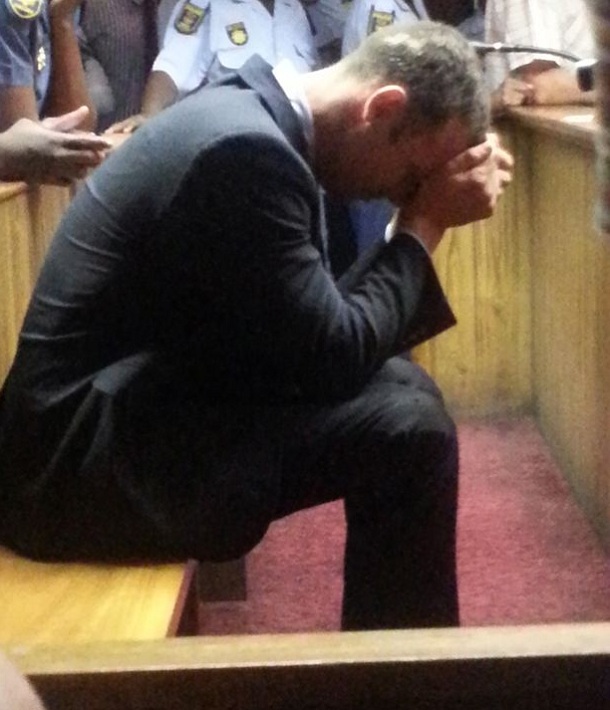Oscar Pistorius returns to court to learn whether he will be granted bail following the death of his girlfriend Reeva Steenkamp.
The arrest of the 26-year-old Olympic and Paralympic sprinter stunned millions across the world who held him up as a hero for triumphing over adversity to compete with able-bodied athletes at the highest level of sport.
His girlfriend, model Reeva Steenkamp, was found shot dead in his Pretoria home in the early hours of Thursday, with initial reports suggesting Pistorius may have mistaken her for an intruder.
However, police said Steenkamp, who will be buried on Tuesday, was killed by more than one gunshot, that Pistorius was the only suspect and that neighbors had heard earlier disturbances.
They said a 9mm pistol was recovered at the house, where there was no sign of a break in.
Since the arrest, South African newspapers have published lurid, unconfirmed details of the killing. If true, they are likely to undermine any potential argument of self-defense, experts say.
His agent said Pistorius, who faces life in prison if found guilty, disputes the murder charge “in the strongest possible terms”.
Prosecutors are expected to oppose any request for bail at Tuesday’s hearing, suggesting they will have to present the court with the state’s full version of the shooting as laid out in the charge sheet.
Pistorius arrived at the court in a police car shortly before 0500 GMT. Proceedings were due to start at 0900 GMT, although chaotic scenes as more than 100 journalists jostled to get in to the courtroom, meant the hearing was delayed.
The case has also put a harsh spotlight on the violence against women endemic in South Africa, which is still reeling from the gang-rape, mutilation and murder of a 17-year-old near Cape Town this month.
Members of the Women’s League of the ruling African National Congress protested outside the building, waving placards saying: “No Bail for Pistorius”.
Oscar Pistorius in Court:Reeva Steenkamp burial
At his bail hearing on Friday, the athlete broke down in tears when the charges were read and prosecutors said they believed the killing was premeditated.
The hearing was adjourned after 40 minutes and Pistorius was taken back to the Pretoria police station where he has been held since. A statement from his family at the weekend said he was “numb” with shock and grief.
The case has gripped sport-mad South Africa, where Pistorius was seen as a rare hero who had transcended the racial divides that persist 19 years after the end of apartheid.
Steenkamp will be buried at a private family ceremony in Port Elizabeth. The coastal city was covered with a blanket of cloud on Tuesday as mourners and reporters gathered at the windswept hilltop Victoria Park Crematorium.
The law graduate appeared on television on Saturday in an “Island of Treasure” reality show filmed last year after her family gave permission for the program to be aired.
Pistorius’ endorsements and sponsorships, which include sportswear giant Nike, British telecoms firm BT, sunglasses maker Oakley and French designer Thierry Mugler, are thought to be worth as much as $2 million a year.
Nike said on Monday it had dropped Pistorius from any future advertising campaigns. Other sponsors have said they will not make any decisions about continued support until the legal process has run its course.
However, Pistorius has cancelled scheduled track appearances in Australia, Brazil and Britain in the coming months to focus on his attempt to clear his name.
Born without a fibula in either leg, Pistorius runs on carbon fiber prosthetic blades after he underwent a double amputation as an 11-month-old baby. He was the first double amputee to run in the Olympics and reached the 400-metres semi-finals in London 2012.
In last year’s Paralympics he suffered his first loss over 200 meters in nine years. After the race he questioned the legitimacy of Brazilian winner Alan Oliveira’s prosthetic blades, but was quick to express regret for the comments.



